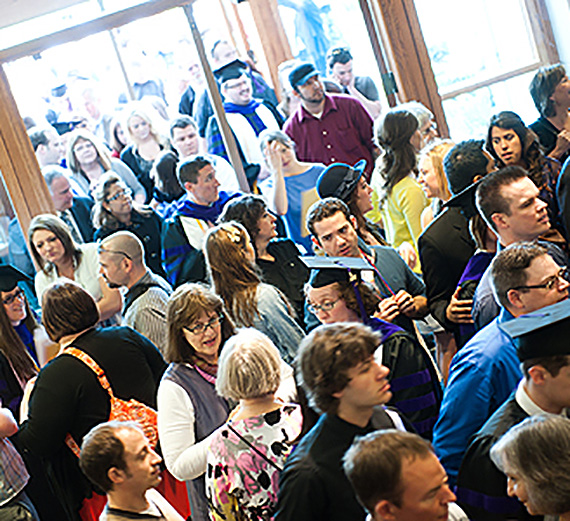Law School Starts 2-Year Degree Plan

Gonzaga News Service
SPOKANE, Wash. — Innovating to address the challenges of legal education, Gonzaga University School of Law will become the first Pacific Northwest school to offer a two-year Juris Doctor degree. Gonzaga opened applications Oct. 1 for students to begin either its two-year program or traditional three-year sequence in 2014.
Challenges with the nation's legal education system are documented in the recent draft report and recommendations from the American Bar Association Task Force on the Future of Legal Education, which recommends multiple changes in the wake of sharp enrollment declines, rising tuition and student debt, and "dramatic changes" in the legal job market.
Gonzaga Law's new two-year path toward a J.D. degree models innovation within existing accreditation standards.
"Our new accelerated program provides motivated students with the option to complete their legal degree in only two years, with exceptional experiential and practice preparation requirements," said Jane Korn, dean of Gonzaga School of Law. "This provides an extra year of opportunity for students. This program will speed the process without sacrificing educational quality."
President Barack Obama joined in the debate recently, suggesting U.S. legal curricula should take two years. Dean Korn agrees that a two-year law degree could work for highly motivated students who will have virtually no break. The ABA accredits law schools, and requires 58,000 minutes of instruction for a J.D. degree.
Dean Korn believes the three-year program will remain an option for law students who wish to follow the traditional academic calendar.
"I have been in legal education for over 25 years and I do not think it is possible to have someone learn the theory and doctrine of the law as well as develop the practical skills that are deemed necessary in today's law practice in two traditional (nine-month) academic years," Dean Korn noted.
Gonzaga Law's Accelerated J.D. program has three terms per calendar year. To address the concern that students in accelerated programs may not have as much opportunity for internships and externships, Gonzaga's two-year program requires 12 credits of experiential learning and allows for up to 15 credits of practical, hands-on training. Also, the two-year program requires four semesters of legal research and writing — double that of many law schools.
"It is the responsibility of law schools to find solutions for the challenges of legal education," Dean Korn said. "While it would be irresponsible to cut the education students receive, it would be equally imprudent to fail to adapt to the changing needs of the legal industry and law students."
The ABA report does not directly address President Obama's recent suggestion for a two-year curriculum.
However, Task Force Chair Randall T. Shepard, former chief justice of the Indiana Supreme Court, called the idea "plausible enough that it's worth examining," notes the Wall Street Journal's Sept. 20 Law Blog.
